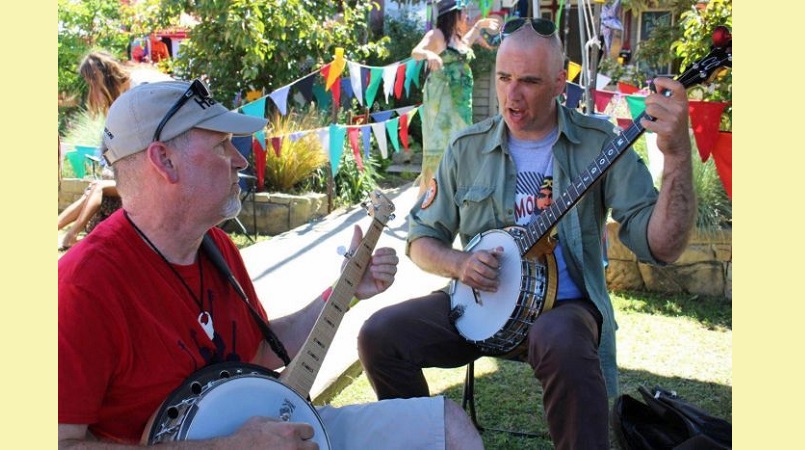
The bohemian enclave of Cygnet, nestled in the hills of Tasmania's Huon Valley, is celebrating 35 years of its iconic folk festival.
Online ticket sales for this year's Cygnet Folk Festival have been the best ever, according to organisers.
"It's grown from a very small community event to gaining, I suppose, a very lovely reputation amongst performers and festival-goers," said festival programmer Erin Collins.
The town's population of about 1500 usually quadruples over the weekend of the festival, and this year 115 local, interstate and international acts will be on show.
CC Thornley is a musician who moved to Tasmania to study banjo at the Hobart Conservatorium.
He has a theory about the instrument, popular with bluegrass, folk and country musicians but grating to some others.
"Banjo is a wonderful, wonderful instrument. It's amazing and I think that's why people hate it so much," he said.
"It has so much unconditional love and that scares people."
But it seems to be a sound that resonates with locals.
"You've got something happening in Tasmania … there is a reverence and respect for art and particularly music," he said.
"The response I've had and the respect I've had in Hobart and Tasmania is unlike anything — I'm never going home. I'm here now to stay."
"I'm going to grow an extra head, all that stuff."
On a sunny morning at the folk festival, Victorian Steve Williams was getting a banjo lesson.
"It's the first instrument I ever picked up and I haven't put it down since really," he said.
"Its just the most brilliant thing."
Hayden Dare and two mates were busking on Cygnet's main street.
"I think the great thing about folk festivals is you get a really eclectic kind of mix of different musicians," he said.
"It's all about just getting together, having a jam, having a bit of fun."
"Often random people just come up and get their instrument up and have a play. That's where you often create so many good times with music, it's just when those unexpected things might happen."
The Irish are dominating the international contingent, and musician Wallis Bird is among them.
"The stuff that I do is very mixed between folk, jazz and alternative music," she said.
"I used to play larger gigs and I've kind of wound down a little because I get way more out of playing anywhere local."
"It got too faceless for me for a while there. The joy of looking somebody in the eye … or you see local bands and get a feel for the area … that's really where I'm at these days."
Toronto-based band Jaron Freeman-Fox & the Opposite of Everything are also enjoying their time in Tasmania, playing the festival for the second time.
"I call our music folk music because I think it's simply the kind of music that you play for exactly who's in front of you in the moment that you're playing it," Jaron said.
"I think there's something really special about festivals where the stages start with performers from the community and then the international performers are on the same stage later that night."
"It has this kind of direct connection.
